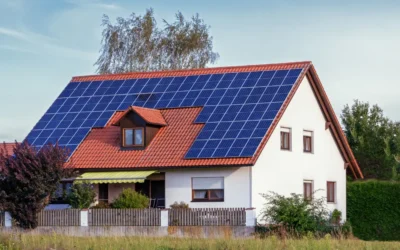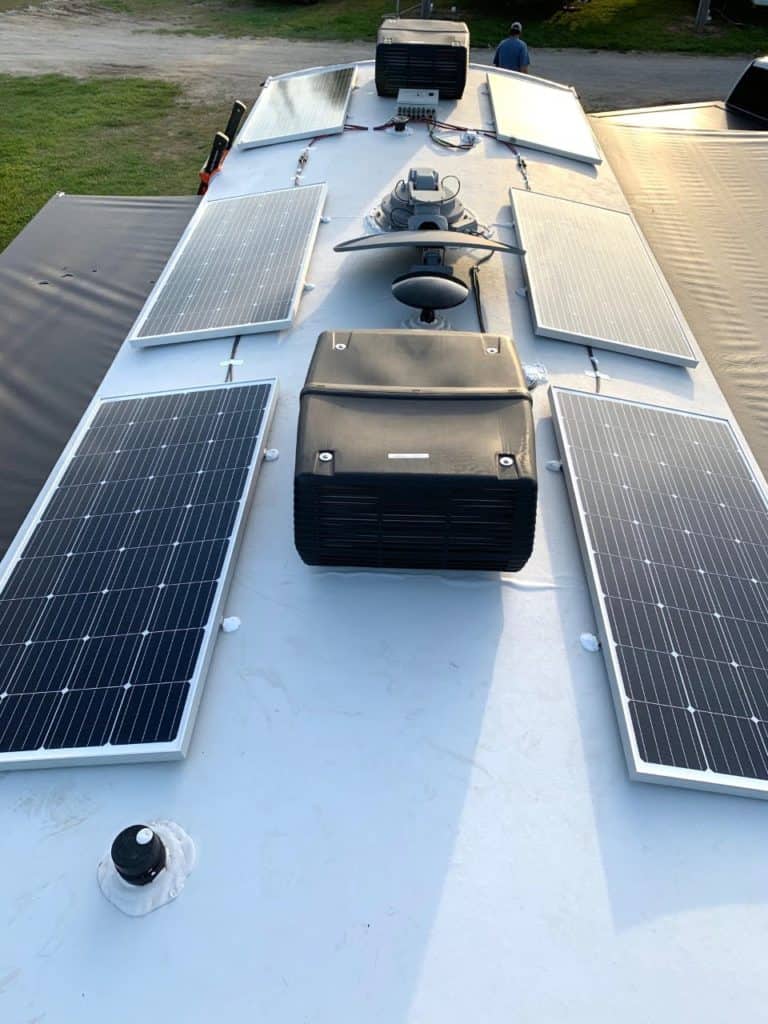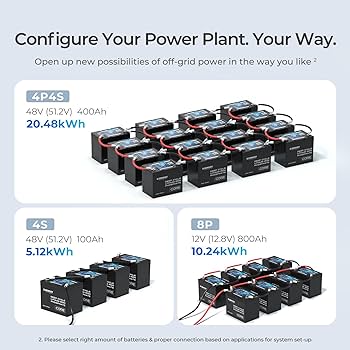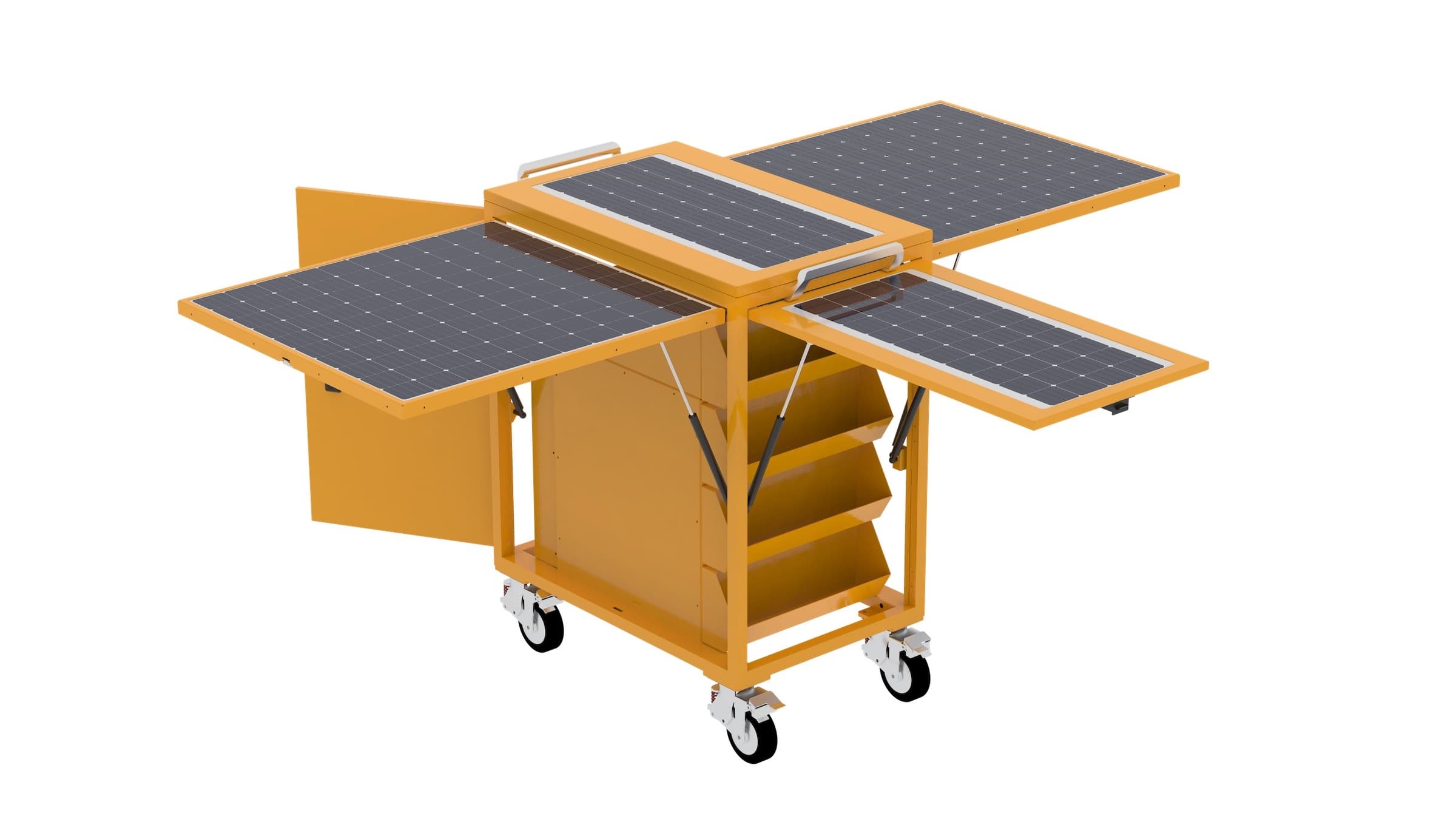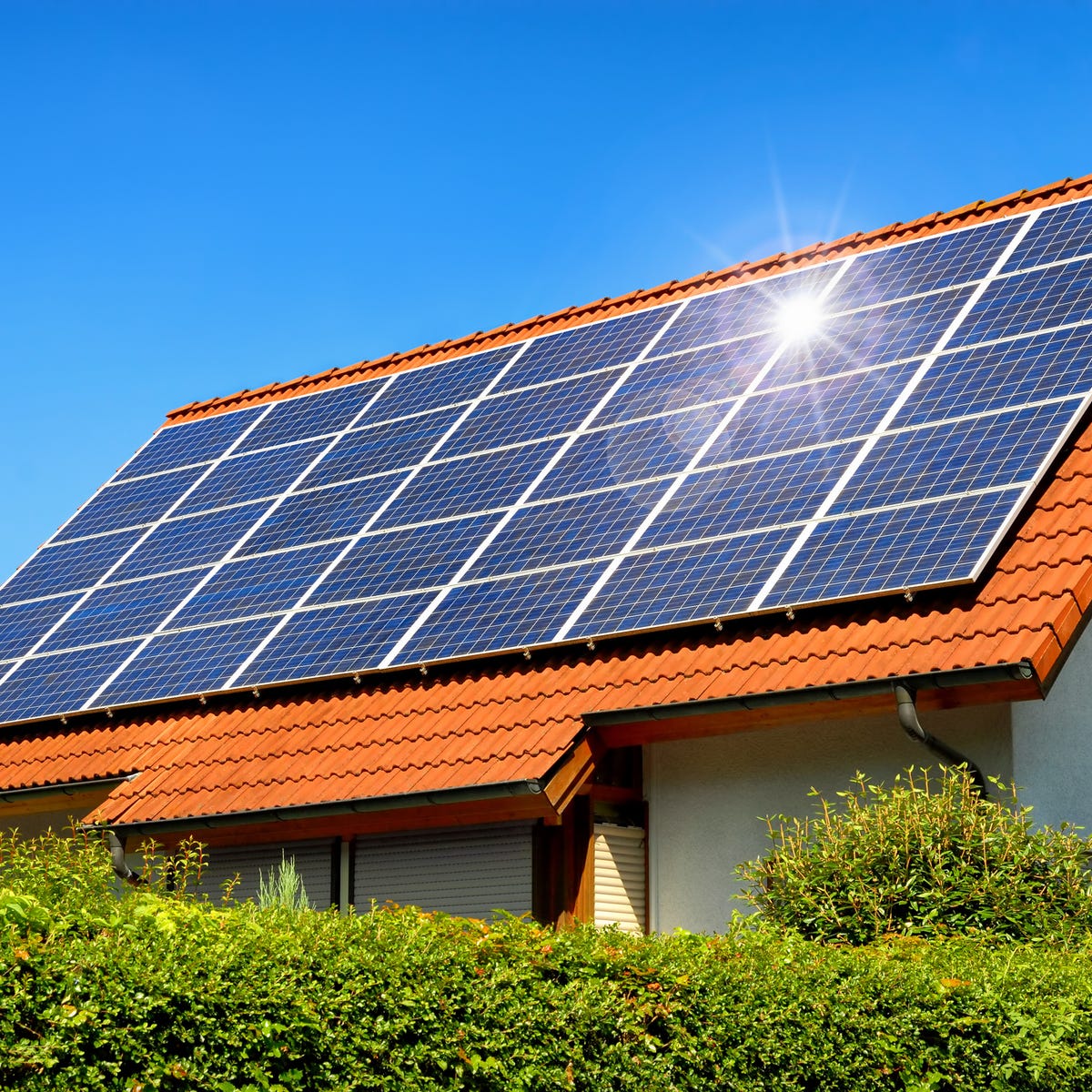Solar power systems for RVs provide an efficient and eco-friendly way to generate electricity on the go. These systems harness the sun’s energy and convert it into usable power for various appliances and devices in your RV, ensuring a reliable source of electricity wherever you travel.
Solar power systems have become increasingly popular among RV owners as a sustainable and cost-effective solution to meet their energy needs while on the road. With the rising awareness of environmental concerns and the desire for off-grid living, RV solar power systems offer a convenient way to generate electricity without being dependent on traditional power sources.
We will explore the benefits of installing a solar power system in your RV, the components required, and some essential considerations to help you choose the right system for your specific needs. Whether you are a full-time RVer or enjoy weekend getaways, a solar power system for your RV can provide energy independence and a greener camping experience.

Credit: www.oasismontana.com
Benefits Of Solar Power Systems For Rvs
When it comes to powering your RV, solar power systems offer a range of benefits that can enhance your camping experience. Whether you enjoy weekend getaways or extended trips, harnessing the power of the sun can provide energy independence, significant cost savings, and an eco-friendly solution for your travels.
Energy Independence
With a solar power system installed on your RV, you no longer have to rely solely on traditional power sources. Instead, you can generate your own electricity, allowing you the freedom to camp in remote locations and explore off-grid destinations. This energy independence means that you are not limited by campground hook-ups or the availability of electrical outlets. You have the ability to venture into the wilderness, knowing that you have a reliable source of power right on your RV.
Cost Savings
Investing in a solar power system for your RV can save you money in the long run. While there is an upfront cost associated with purchasing and installing the solar panels and equipment, the overall savings over time can be substantial. With solar power, you can reduce or even eliminate your reliance on traditional fuel-powered generators, which can be expensive to operate. Additionally, you can avoid campground fees for electrical hook-ups, further reducing your expenses. By harnessing the power of the sun, you can enjoy a more cost-effective way to power your RV and save money for other adventures.
Eco-friendly Solution
Solar power is not only a practical choice for RV enthusiasts, but it is also an environmentally friendly one. By using solar energy, you are utilizing a renewable and clean source of power. Solar power systems produce zero greenhouse gas emissions, reducing your carbon footprint and helping to preserve the natural beauty of the destinations you visit. Choosing an eco-friendly solution like solar power for your RV aligns with a sustainable lifestyle and supports the protection of the environment for future generations to enjoy.
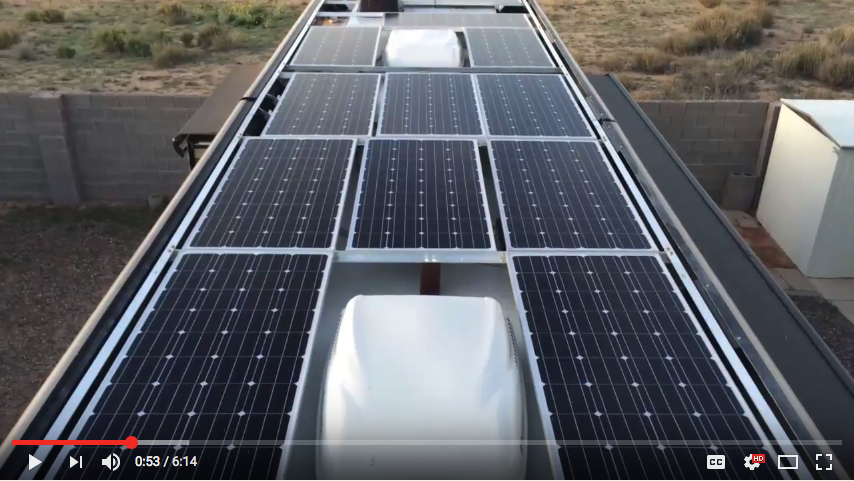
Credit: precisionrv.com
Components Of A Solar Power System For Rvs
Solar power systems are becoming increasingly popular among RV enthusiasts due to their ability to provide renewable energy on the go. Understanding the components of a solar power system for RVs is essential for anyone looking to install this eco-friendly and cost-effective solution.
Solar Panels
Solar panels are the heart of any RV solar power system. These panels capture sunlight and convert it into electricity that can be used to power various appliances and devices inside the RV. The number and size of solar panels needed depend on the energy consumption of the RV and the available roof space for installation.
Charge Controller
A charge controller is an essential component that regulates the flow of electricity from the solar panels to the battery bank. It prevents overcharging and ensures the batteries are charged optimally, extending their lifespan. A quality charge controller also protects the solar panels from damage due to overvoltage and excessive current flow.
Battery Bank
The battery bank stores the solar-generated electricity for use during periods of low sunlight or at night. Deep cycle batteries, such as lithium-ion or lead-acid batteries, are commonly used in RV solar power systems. The capacity of the battery bank should be determined based on the energy usage requirements and the duration of power autonomy desired.
Inverter
An inverter is crucial for converting the stored DC (direct current) electricity from the battery bank into AC (alternating current) electricity, which is used to power most household appliances and electronic devices. The size and type of inverter needed depend on the wattage and peak power demands of the RV’s electrical devices.
Choosing The Right Solar Power System For Your Rv
Are you ready to take your RV adventures off the grid? Solar power systems provide a reliable and eco-friendly way to power your RV while you explore the great outdoors. But with so many options on the market, how do you choose the right system for your needs? In this article, we’ll guide you through the process of selecting the perfect solar power system for your RV.
Assessing Your Power Needs
Before diving into the world of solar power systems, it’s important to assess your RV’s power requirements. Take a look at the appliances and devices you typically use while on the road. This list may include your refrigerator, lights, water pump, TV, and charging stations for your electronics.
Next, determine the daily usage in ampere-hours for each device. This information will help you estimate the total amount of power you’ll need on a daily basis. Keep in mind that your power needs may vary depending on the season, climate, and the number of occupants in your RV.
Considering Solar Panel Types
When it comes to solar panel types, you have a few options to choose from. The most common are monocrystalline and polycrystalline panels. Monocrystalline panels are known for their higher efficiency and better performance in low-light conditions. On the other hand, polycrystalline panels are more affordable and work well in high-temperature environments.
Consider the size and weight of the panels as well. While larger panels may generate more power, they can be bulky and difficult to install on your RV. Flexible solar panels are a popular choice for RV owners due to their lightweight design and ease of installation.
Determining The Battery Capacity
Your RV’s battery capacity plays a crucial role in storing the energy generated by your solar panels. To determine the right battery capacity, calculate the number of ampere-hours you use in a day and multiply it by the desired autonomy period. The autonomy period refers to the number of days you want your battery to sustain your power needs without recharging.
It’s important to choose a battery type that is suited for deep cycling, as RV batteries undergo frequent charging and discharging cycles. AGM (Absorbent Glass Mat) and Lithium-ion batteries are popular choices for RV solar power systems due to their durability and discharge efficiency.
Sizing The Inverter
An inverter is an essential component of your RV’s solar power system, as it converts the DC power stored in your batteries into AC power that can be used by your appliances. When sizing your inverter, consider the peak power requirements of your high-energy appliances, such as the microwave or air conditioner. Ensure that your inverter can handle the maximum power surge without causing any damage.
Additionally, pay attention to the inverter’s efficiency and the number of AC outlets it provides. This will ensure that you can power multiple appliances simultaneously and make the most of your solar energy.
Now that you have the knowledge to choose the right solar power system for your RV, you can embark on your off-grid adventures with confidence. Assess your power needs, consider the different solar panel types, determine the battery capacity, and size the inverter accordingly. With the right solar power system, you’ll be able to enjoy the freedom and sustainability of solar energy on your travels.
Installation And Maintenance Of Solar Power Systems For Rvs
When it comes to off-grid living in an RV, solar power systems offer an excellent solution for generating electricity without relying on traditional power sources. Not only do these systems allow RVers to enjoy their adventures in remote locations, but they also provide a sustainable and eco-friendly way to power their vehicles. However, the successful installation and maintenance of solar power systems for RVs require careful planning and attention to detail.
Installation Steps
Installing a solar power system on your RV may seem daunting at first, but it can be a straightforward process when broken down into manageable steps. Here are the essential steps to follow:
- Determine your power needs: Assess your energy requirements to determine the right capacity for your solar power system. Consider your RV’s appliances and electronics that will be powered by the system.
- Choose the right solar panels: Select quality solar panels that fit your RV’s available space and budget. Monocrystalline panels are known for their efficiency, while flexible panels offer more versatility in terms of installation.
- Position the solar panels: Mount the panels on the RV roof or any other suitable location where they can receive maximum sunlight. Ensure proper alignment and angle to optimize energy production.
- Install the charge controller: Connect the charge controller to the solar panels and the RV’s battery bank. This device regulates the energy flow and prevents overcharging to prolong battery lifespan.
- Wire the system: Connect the solar panels to the charge controller using appropriate wiring. Use high-quality cables and connectors to minimize power loss and maintain system efficiency.
- Connect to the battery bank: Connect the charge controller’s output to the RV’s battery bank. Ensure proper polarity and secure all connections to prevent the risk of short circuits.
- Test the system: Before using the solar power system, perform a comprehensive test to ensure all components are functioning correctly. This includes checking the voltage, current, and battery charging status.
Wiring And Safety Precautions
When it comes to wiring and safety precautions, it’s crucial to follow the recommended guidelines to ensure a safe and efficient solar power system installation. Here are some key tips to keep in mind:
- Use proper wire sizing: Determine the appropriate gauge wire based on the distance between the solar panels, charge controller, and battery bank. Oversized wires can result in unnecessary costs, while undersized wires may lead to power loss and overheating.
- Install proper fuses and breakers: Install fuses or circuit breakers at strategic points in the wiring system to protect against short circuits and overloads. These safety devices can help prevent electrical fires and damage to your RV’s electrical system.
- Ensure good grounding: Establish a solid ground connection throughout the system to minimize the risk of electrical shock and protect against voltage surges. Use designated grounding terminals and check for secure connections regularly.
- Observe correct polarity: Connect the positive and negative terminals of the solar panels, charge controller, and battery bank according to the manufacturer’s instructions. Reversed polarity can damage the components and compromise system performance.
- Regularly inspect and maintain the wiring: Periodically check the wiring connections for any signs of wear, damage, or corrosion. Tighten any loose connections and replace any faulty wiring promptly to avoid potential issues.
Regular Maintenance Tips
To ensure the longevity and optimal performance of your RV solar power system, regular maintenance is essential. Here are some maintenance tips to keep in mind:
- Clean the solar panels: Regularly clean the solar panels to remove dust, dirt, and debris that can reduce their efficiency. Use a soft brush or sponge and a mild detergent, and avoid abrasive materials that may scratch the surface.
- Monitor battery levels: Keep an eye on the battery levels to ensure they don’t discharge too deeply, as this can lead to permanent damage and reduced lifespan. Consider installing a battery monitor to accurately track the charge status.
- Inspect for damage: Perform routine inspections of the entire solar power system for any signs of damage, such as cracked panels or loose connections. Address any issues promptly to prevent further complications.
- Check for shading: Monitor your RV’s surroundings for any new obstructions that may cast shadows on the solar panels. Trim nearby branches or adjust your parking position to maximize sunlight exposure.
- Keep the system secure: Check that all mounting brackets, screws, and fasteners are securely tightened. Vibrations during travel can loosen these components, potentially causing damage or loss of the system.
By following these installation steps, wiring and safety precautions, and regular maintenance tips, you can enjoy the benefits of a reliable and efficient solar power system in your RV. Ensure you understand the specific requirements of your system and seek professional assistance if needed. With proper care, your solar power system will provide endless renewable energy for your RV adventures.
Tips For Optimizing Solar Power Usage In Rvs
In order to make the most of your solar power system in your RV, there are several tips and strategies you can follow to optimize solar power usage and ensure a consistent and efficient energy supply. By implementing these tips, you can maximize the benefits of solar energy and enjoy the freedom of off-grid living while traveling in your RV.
Positioning The Solar Panels
Proper positioning of solar panels is crucial for optimizing solar power usage in RVs. Placing the panels in a location where they can receive maximum sunlight exposure throughout the day is essential. Angling the panels to align with the sun’s path can significantly improve energy production. Moreover, regularly cleaning the panels to remove dust and debris can ensure optimal efficiency.
Maximizing Energy Storage
Efficient energy storage is essential for maximizing the utility of solar power in RVs. Investing in high-quality and sufficient battery storage capacity is crucial for storing surplus energy generated by the solar panels. Regularly monitoring the battery charge levels and ensuring proper maintenance can extend their lifespan and optimize energy storage for consistent power supply.
Conserving Energy
Conserving energy is a key aspect of optimizing solar power usage in RVs. Implementing energy-efficient appliances and devices can significantly reduce power consumption. Moreover, practicing mindful energy usage habits, such as turning off lights and appliances when not in use, can effectively conserve energy and prolong battery life.
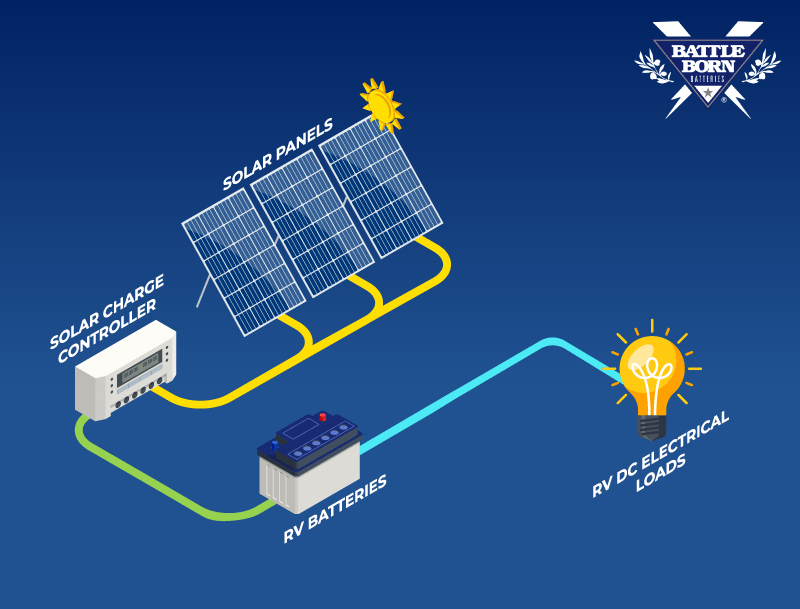
Credit: battlebornbatteries.com
Conclusion
Incorporating a solar power system into your RV can greatly enhance your travel experience. It provides a reliable and sustainable source of energy, allowing you to venture off the grid with ease. With the numerous benefits and advancements in solar technology, investing in a solar power system for your RV is a wise decision for both the environment and your wallet.




